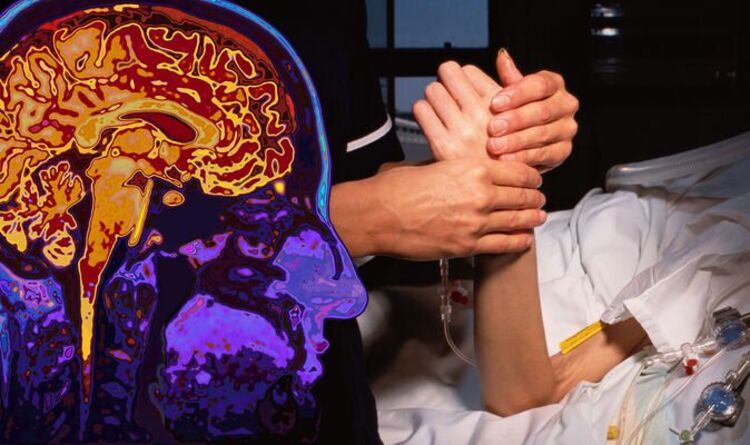

During the research, neuroscientists found rhythmic brain wave patterns around the time of death that were similar to those occurring during dreaming, memory recall, and meditation. These findings add weight to the idea of humans having their life flash before their eyes before their death. For ages, scientists have tried to understand what happens to the human brain when they die.
Now a new study published to Frontiers in Aging Neuroscience suggests that your brain may remain active and coordinated during and even after the transition to death, and be programmed to orchestrate the whole ordeal.
For this researcher, Dr Raul Vicente of the University of Tartu, Estonia studied an 87-year-old patient who developed epilepsy.
Dr Vicente and his team used continuous electroencephalography (EEG) to detect the seizures and treat the patient.
During these recordings, the patient had a heart attack and passed away.
This unexpected event allowed the scientists to record the activity of a dying human brain for the first time ever.
Dr Ajmal Zemmar, a neurosurgeon at the University of Louisville, US, who organized the study said: “We measured 900 seconds of brain activity around the time of death and set a specific focus to investigate what happened in the 30 seconds before and after the heart stopped beating.
“Just before and after the heart stopped working, we saw changes in a specific band of neural oscillations, so-called gamma oscillations, but also in others such as delta, theta, alpha, and beta oscillations.”
These brain oscillations, which are more commonly known as brain waves, are patterns of rhythmic activity present in living human brains.
READ MORE: Dementia: Four types of fish that could cause ‘rapid’ brain decline
These different types of oscillations, including gamma, are involved in high-cognitive functions, such as concentrating, dreaming, meditation, memory retrieval, information processing, and conscious perception, just like those associated with memory flashbacks.
Dr Zemmar said: “Through generating oscillations involved in memory retrieval, the brain may be playing a last recall of important life events just before we die, similar to the ones reported in near-death experiences.
“These findings challenge our understanding of when exactly life ends and generate important subsequent questions, such as those related to the timing of organ donation.”
The researchers note that further research would be needed as the brain they were studying belonged to a patient who had suffered injury, seizures and swelling, all of which complicate the interpretation of the data.
He said: “As a neurosurgeon, I deal with loss at times. It is indescribably difficult to deliver the news of death to distraught family members.
“Something we may learn from this research is: although our loved ones have their eyes closed and are ready to leave us to rest, their brains may be replaying some of the nicest moments they experienced in their lives.”





More Stories
POLL: Would you install a hydrogen-ready boiler in your home?
Hearses line the streets of Beijing as China’s Covid crisis causes crematorium backlog
London Defender Person Of The Year Is Genius Inventor Andre Gray 2022